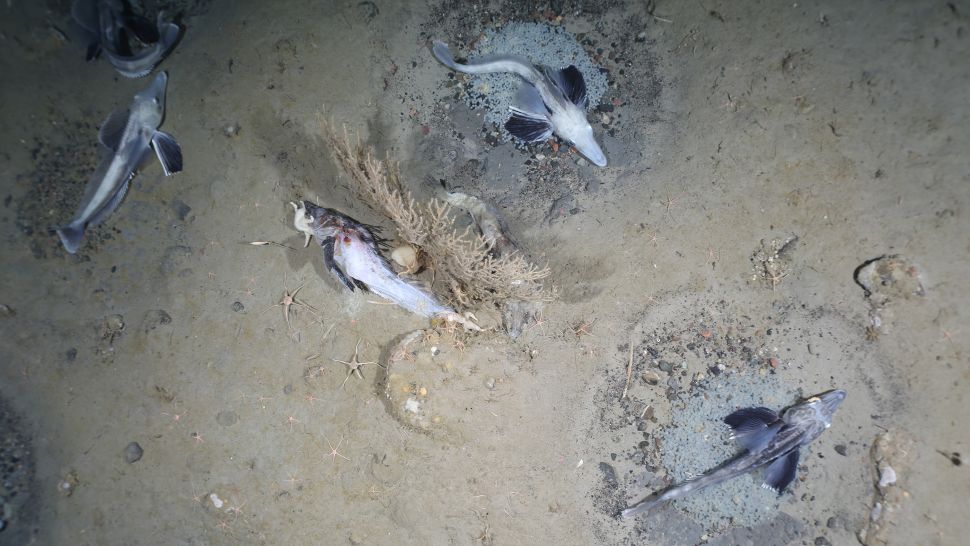Alan Granville08:48, Jan 14 2022
The most striking feature of the Blanket Octopus is its vibrant and almost fluorescent ‘rainbow-like’ cape.
When marine biologist Jacinta Shackleton first saw the rainbow-coloured flicker out of the corner of her eye in a dive off Lady Elliot Island at the southern end of Australia’s Great Barrier Reef, she thought it was just a regular juvenile fish.
But on closer inspection she realised she was having what she believes is a once-in-a-lifetime experience –seeing an extremely rare female blanket octopus.
Shackleton admitted she couldn’t contain her emotions.
“I had this overwhelming sense of joy and excitement. I kept yelling through my snorkel, ‘it’s a Blanket Octopus!’ I was so excited I was finding it difficult to hold my breath to dive down and video it,” said Shackleton.

@JACINTASHACKLETON/SUPPLIED
The octopus mainly spends its lifecycle in the open ocean.

@JACINTASHACKLETON
A rare sighting of the Blanket Octopus.
Sightings of this particular octopus are rare. A male was first spotted 21 years ago further north on the Great Barrier Reef. Since then there’s been just three other sightings of the blanket octopus at Lady Elliot Island until this latest discovery.
The name “blanket octopus” comes from the webbed “cape” or “blanket” that trails behind the female, a feature the males do not display. One of the most unusual features of this marine mollusc is that the species has the largest gender size discrepancy in the marine world. A female blanket octopus can grow up to two metres in length, whereas the much smaller males grow to around 2.4cm.

@JACINTASHACKLETON
The name ‘Blanket Octopus’ comes from the webbed ‘cape’ or ‘blanket’ that trails behind the female, a feature the males do not display.
The octopus mainly spends its lifecycle in the open ocean and most of the images of it have come at night making this day-time reef appearance even more unusual.
“Seeing one in real life is indescribable, I was so captivated by its movements, it was as if it was dancing through the water with a flowing cape. The vibrant colours are just so incredible, you can’t take your eyes off it,” said Shackleton.
“I’ve truly never seen anything like it before and don’t think I ever will again in my life.”
For more details on Lady Elliot Island go to at queensland.com/greatbarrierreef.







